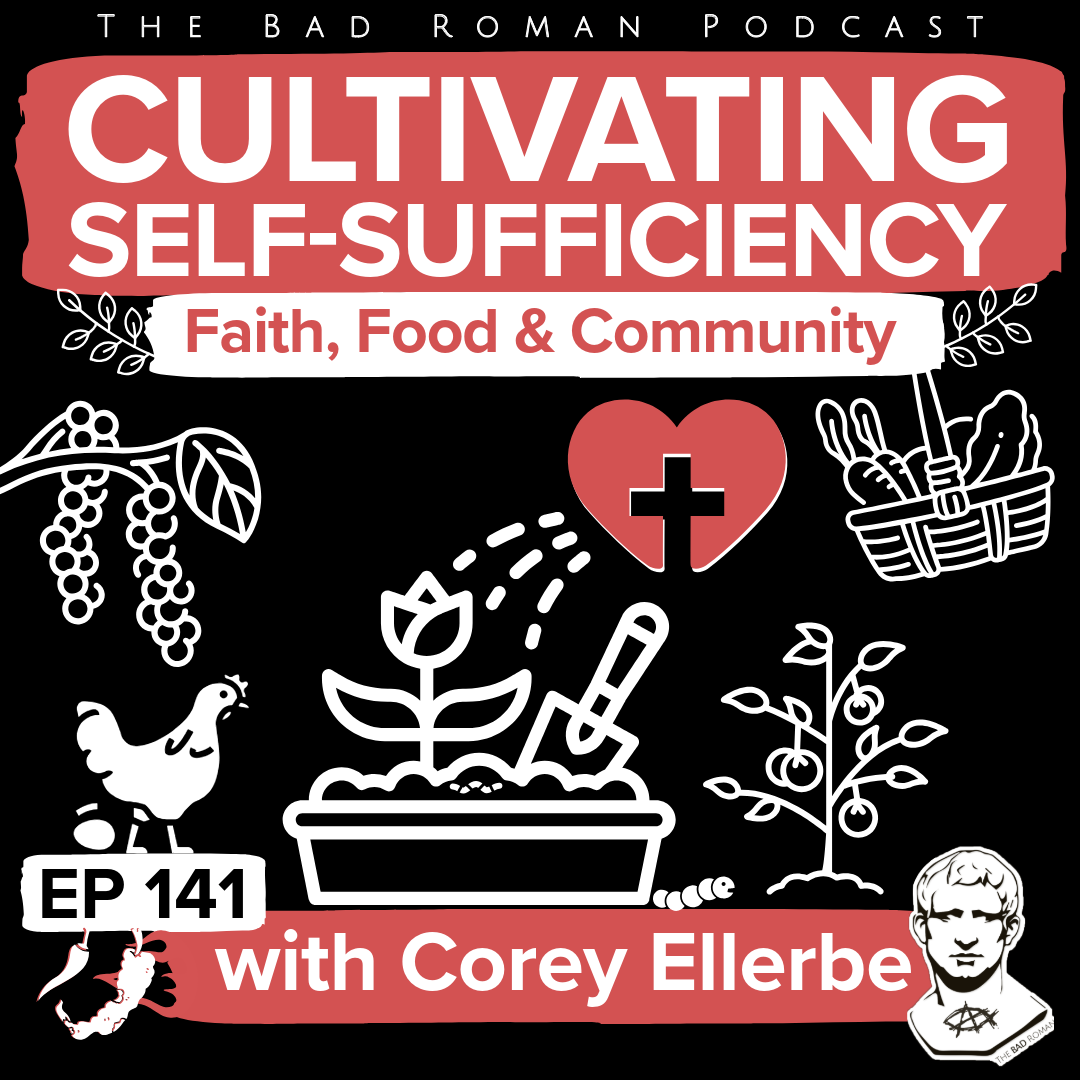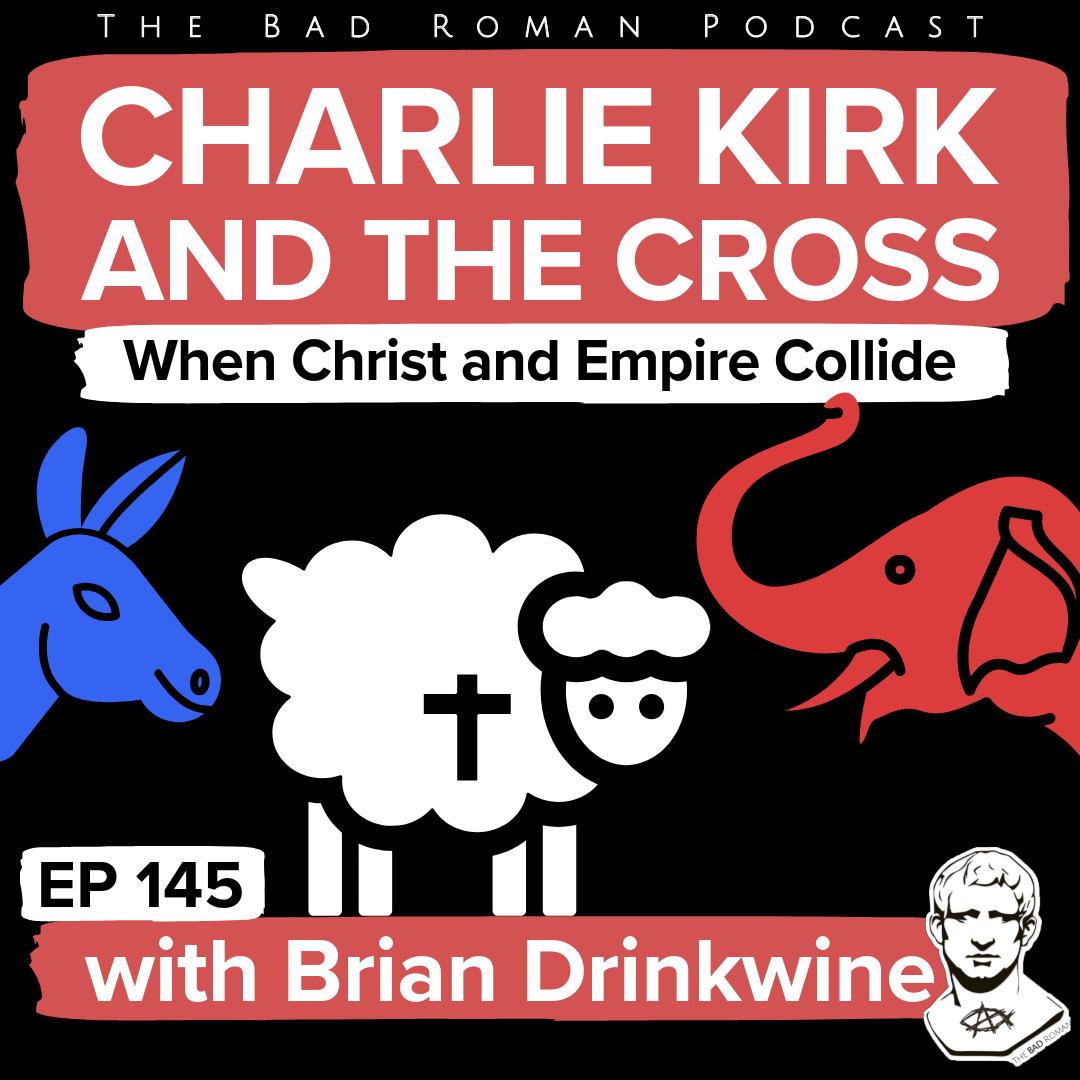What if growing a tomato could change your life?
Okay, maybe that sounds dramatic. But as we learned in our latest episode of The Bad Roman Podcast, planting that first seed might be the beginning of something much deeper, something that touches your spirit, strengthens your community, and helps you step away from systems that don’t serve you.
We sat down with Corey Ellerbe to talk about his gardening journey, how it started, what it’s become, and why it might just be one of the most quietly revolutionary things you can do right now.
From Tomatoes to Food Forests: How It All Started
“I started with just a few tomatoes,” Corey says, “and now I’m dreaming of food forests and agroforestry systems.”
That’s the thing with gardening, it often starts small. A pot of basil on the windowsill. A raised bed in the backyard. Then one day, you’re talking about companion planting, composting, and building systems that can sustain generations.
But Corey’s story is bigger than just a growing love for plants. Like many of us, 2020 shook something loose. The fragility of supply chains, the limits of store shelves, the creeping feeling that we might be more dependent than we want to admit. That was a wake-up call. And gardening became a way to take back a bit of control—and to reconnect with something real.
Why Gardening Matters Right Now
We’re more disconnected from our food than ever. Most of us don’t know where our groceries came from, how they were grown, or what systems were involved in getting them to us. Gardening changes that. It brings you back to your roots—literally and spiritually.
But it also opens up bigger questions:
What would it look like to produce food locally again?
How can we depend less on centralized systems that often fail us?
Can growing food be a form of peaceful resistance?
Corey says yes. And we think he’s onto something.
Key Takeaways from the Conversation
🌱 Start Small—But Start
Corey’s advice for beginners? Don’t try to do everything at once.
“Even if it’s just herbs in a pot,” he says, “that’s a start. And every expert gardener started as a beginner.”
You don’t need land or a greenhouse to begin. Just start with what you’ve got and build from there.
🌾 Gardening as a Quiet Revolution
Gardening doesn’t seem political. But it can be. Choosing to grow your own food instead of buying into industrial ag systems is a step toward independence.
“It’s about rendering the state obsolete through market action,” Corey explains, tying the philosophy back to agorism and voluntaryism. You're not just growing food. You're reclaiming your autonomy.
🤝 Grow Food, Grow Community
One of the most beautiful parts of gardening? It brings people together. Whether you’re trading tomatoes at a local farmers’ market, swapping seeds with neighbors, or helping someone start their first raised bed (these actions build bonds).
“We’re not meant to be totally self-sufficient,” Corey reminds us. “We’re created for community.”
It’s a reminder that self-sufficiency doesn’t have to mean isolation. In fact, the most resilient communities are the ones that grow together.
✝️ Gardening as Worship
For Corey, gardening is also a spiritual practice.
“Watching how everything works together, the soil, the pollinators, the weather, it’s incredible,” he says. “It shows the beauty of God’s design.”
Tending a garden becomes an act of stewardship. It’s a way of caring for creation and slowing down enough to notice the small miracles around us.
Practical Tips for Getting Started
Whether you’re in a city apartment or have a few acres, here’s what Corey suggests:
Know your zone. It’s not everything, but understanding your climate will help you pick plants that thrive where you are.
Work with nature. Instead of spraying chemicals, learn about beneficial insects and natural pest control.
Try stuff. Some things will die. Some will surprise you. Gardening is one big experiment.
Talk to local gardeners. Your neighbors (and local nurseries) often have the best advice for your area.
Final Thoughts: What Will You Plant?
This conversation reminded us that gardening isn’t just about food. It’s about slowing down, looking around, and choosing to live differently. It’s about getting your hands dirty, yes, but also getting your soul fed.
So whether you’re dreaming of chickens and food forests, or just wondering if you could keep a basil plant alive, this episode is for you.
Here’s how to keep growing:
🎧 Listen to the full episode with Corey Ellerbe.
📺 Check out Corey’s YouTube channel, Old 37 Homestead, for how-tos and inspiration.
🌱 Plant one thing. Just one. And see what grows from there.
Every garden starts with a seed. What will you plant today?
🤝Connect with Corey:
Old 37 Homestead: Corey Ellerbe's YouTube channel
Episode Timestamps:
(0:44) Gardening and Agrism Discussion
Importance of self-sufficiency and reduced reliance on the state
Introduction of guest Corey Ellerbe and his YouTube channel Old 37 Homestead
(1:01) Background on Corey's Gardening Experience
Living in Central Florida
Initial interest in gardening as a teenager
Starting gardening after marriage on an acre of land
(3:38) Craig's Gardening Journey
Recent start in gardening with pepper plants
Challenges with bugs and plant care
(6:46) Gardening Advice from Corey
Working with nature rather than against it
Importance of natural predators in pest control
Regional gardening considerations
(13:39) Corey's Gardening Philosophy
Focus on agroforestry and food forests
Adapting to Florida's unique climate and soil conditions
(25:04) Gardening as a Way to Subvert the State
Discussion on self-sufficiency and community building
Comparison to historical examples like the fall of the USSR
(45:35) Gardening and Relationship with Christ
Corey's perspective on God's design in nature
Observations on synergy in natural systems
(54:55) Old 37 Homestead YouTube Channel
Overview of Corey's approach to content creation
Focus on real-life gardening experiences and challenges
(1:06:27) Advice for New Gardeners
Starting small and not overwhelming yourself
Importance of regional-specific gardening knowledge
(1:15:07) Gardening Zones and Regional Considerations
Explanation of gardening zones and their significance
Adapting plants to different climates
(1:19:39) Closing Thoughts
Encouragement for listeners to explore gardening
Importance of community and self-sufficiency
Episode Resources:
David the Good: Gardening author and blogger specializing in Southeast/Florida gardening
freedomcells.org: Website for connecting with like-minded individuals for community building
Stefan Verstappen: Survivalism and prepping expert
Curtis Stone: Agorist anarchist gardener from West Canada
Sal the Agorist (Sal Mayweather): Advocate for using markets to subvert the state
USDA Plant Hardiness Zone Map: Tool for determining gardening zones based on zip code
Farmer's markets: Suggested as a great place to learn about regional gardening and find local produce
Vermicomposting: Method of using worms for composting
Agroforestry and food forest systems: Gardening approaches mentioned by Corey
Pigeon pea: Plant example given for perennial food production
Hatsune Miku: Mentioned as an example of a virtual pop star (tangential to main discussion)



















